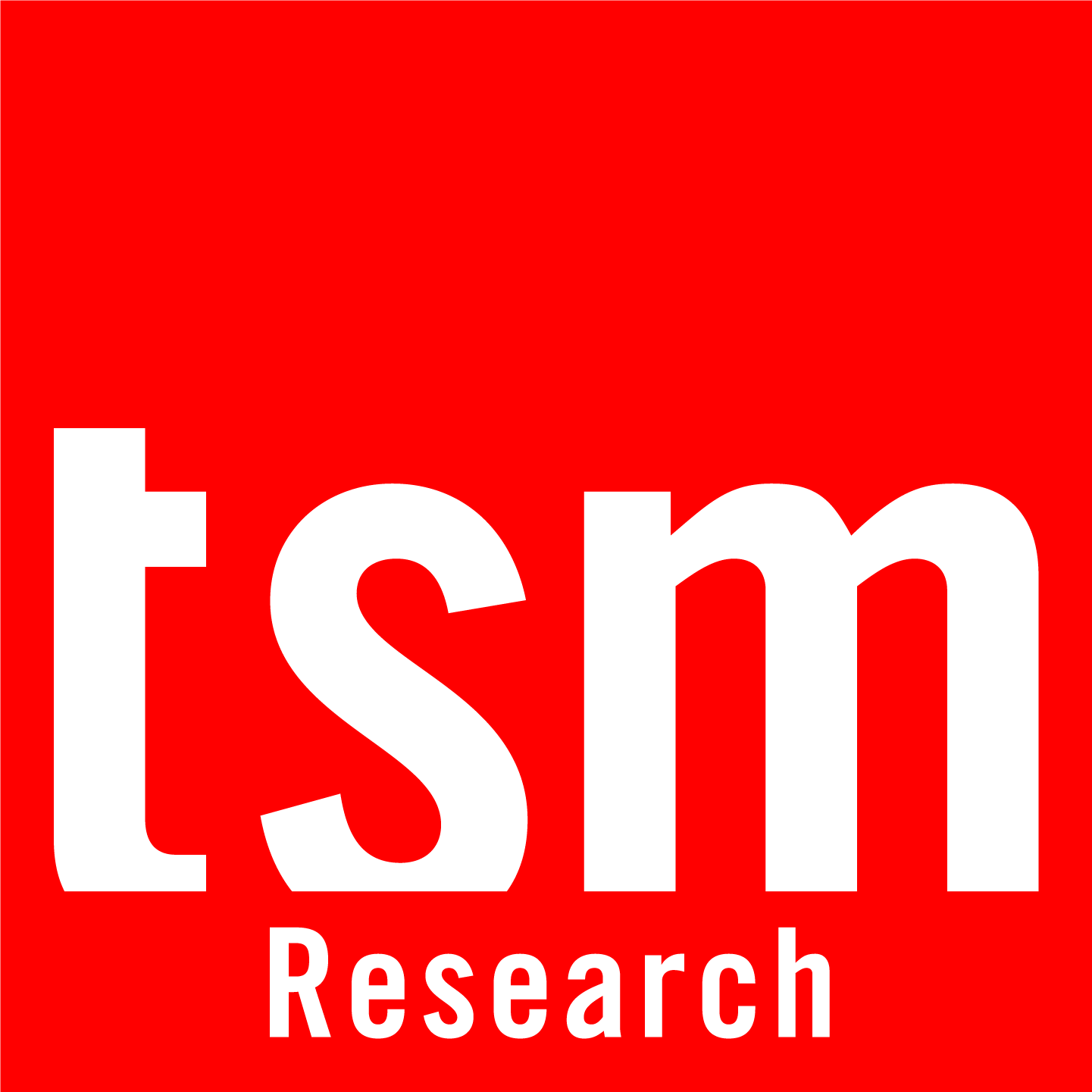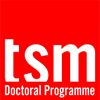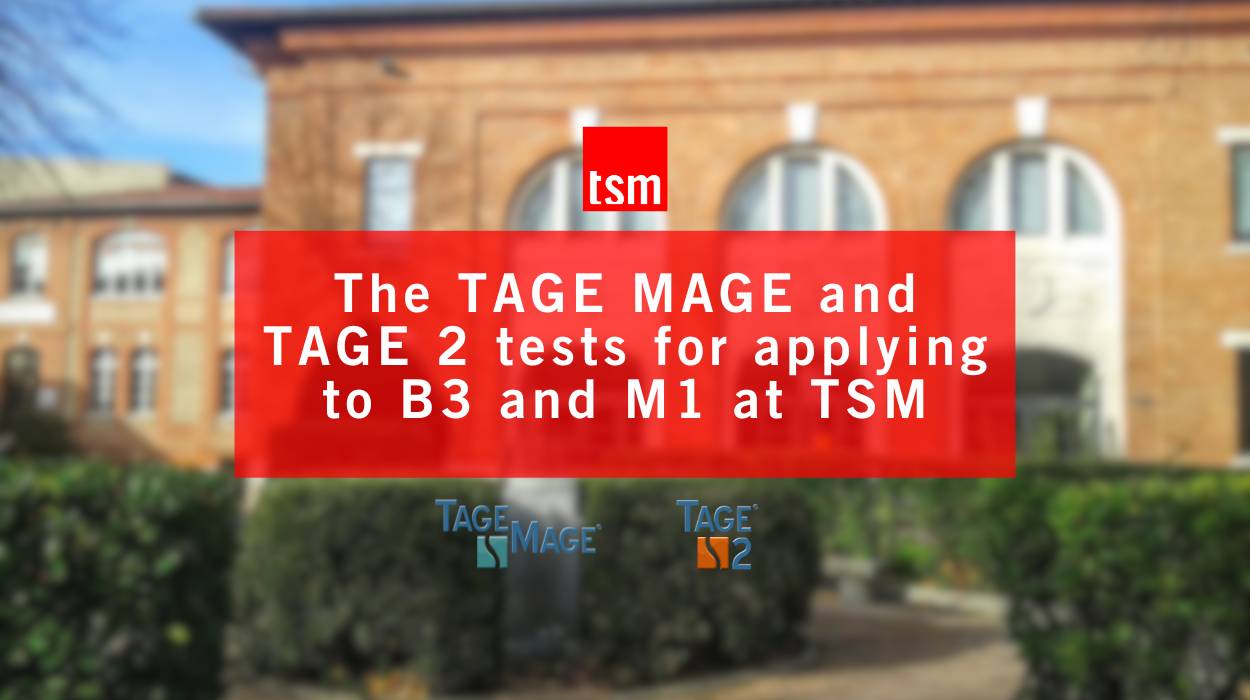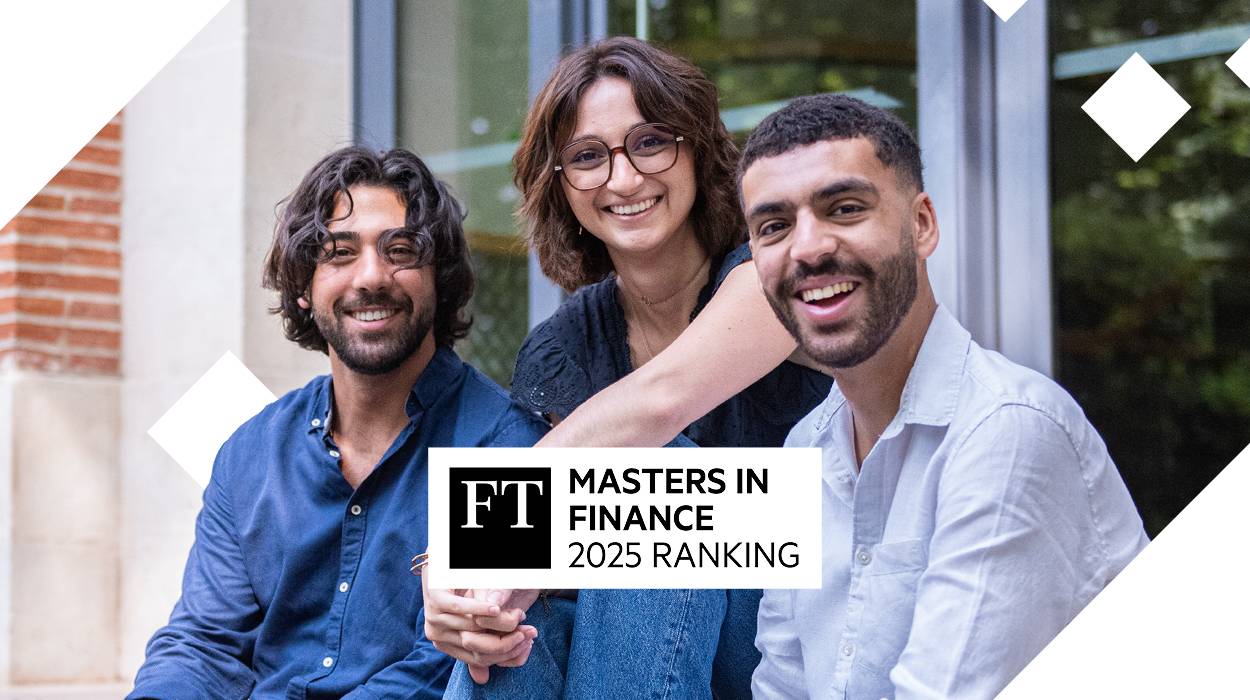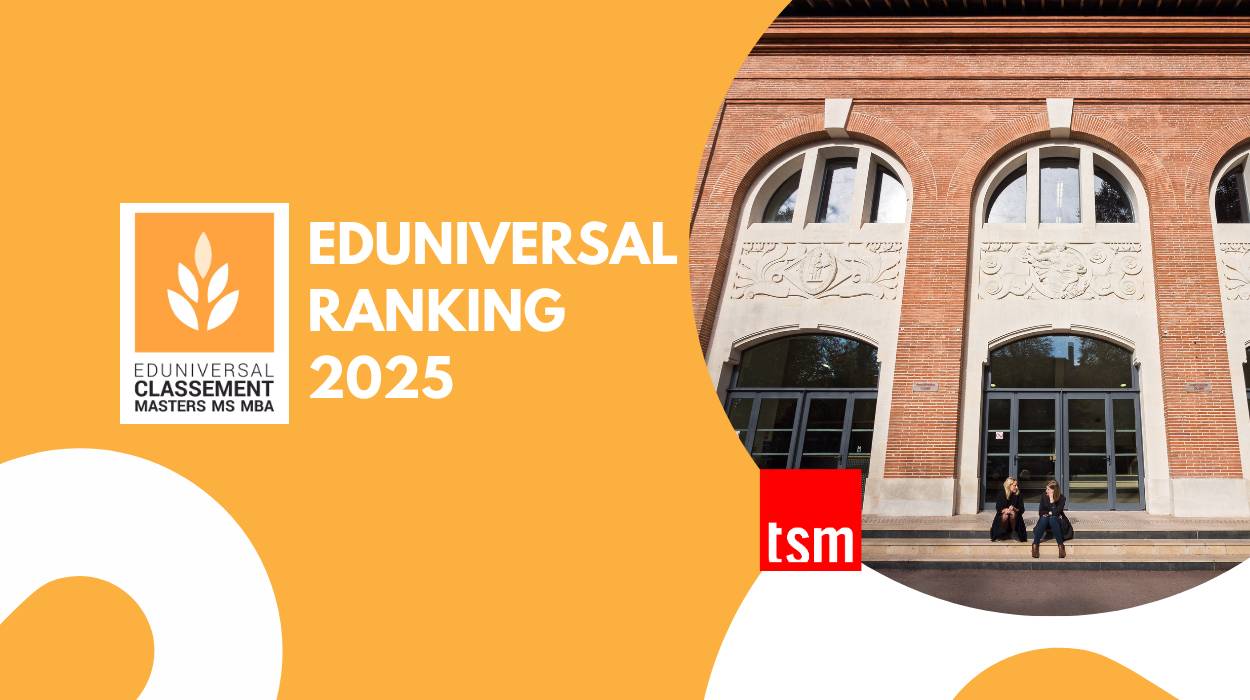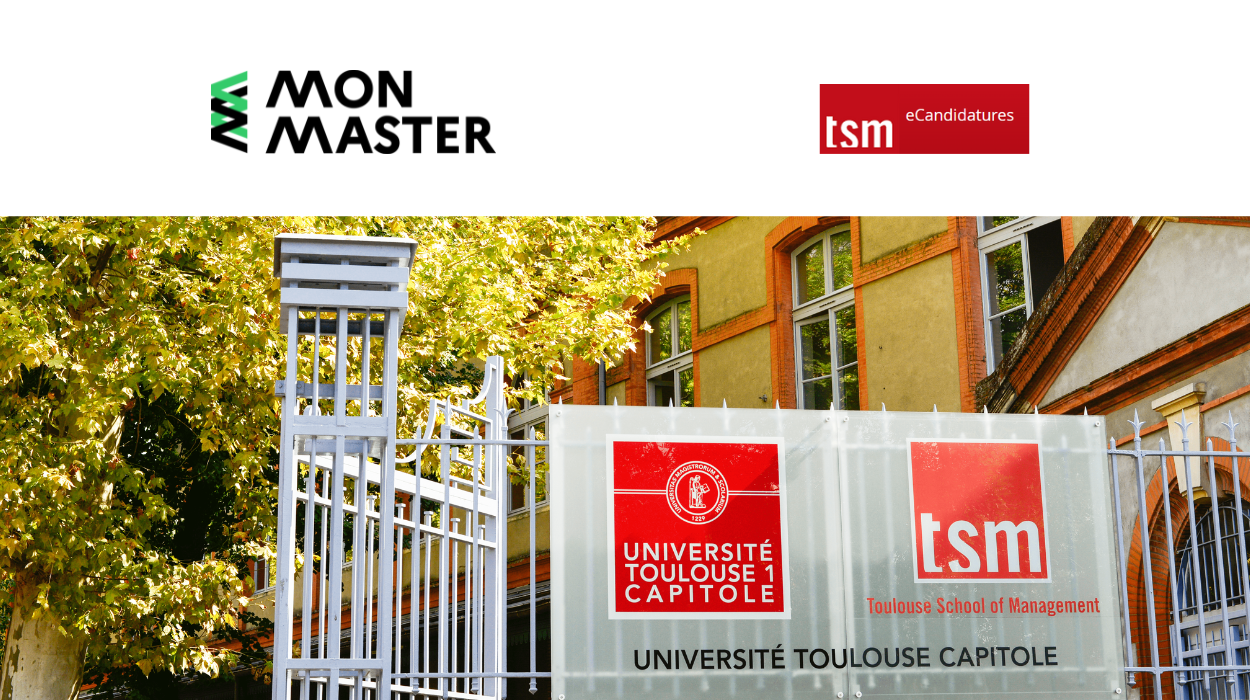30
44%
11
24
33% / 67%
3 reasons to apply
Admission
Documents to be provided
- CV
- Letter of motivation
- Copy of national identity card or passport
- Transcripts of marks from the baccalaureate and post-baccalaureate course
- English language certification from the list of authorised certifications (candidates whose mother tongue is English are exempt)
- Other documents may be requested depending on your situation
Application requirements
Download all the information about applying
Checking eligibility
- You are a soon-to-be graduate or a recent graduate with limited work experience.
- You should hold, or plan to achieve by the time the Master in Finance, FIT track starts, a 1-year (or the first year of a) Master degree or a 4-year Bachelor degree with excellent results from an internationally recognised university.
- Quantitative proficiency is required for this program.
- Strong English language communication skills are crucial.
Key attributes expected of the candidate
The Finance and Information Technology track of the TSM Master in Finance seeks to attract highly qualified students from all over the world who show a strong motivation to pursue their careers in the financial sector both in France or at an international level.
Our target student profile is pre-experience French and international students. Indeed, our FIT track of the TSM Master in Finance program is a postgraduate program tailored to recent graduates and early-career professionals looking to enhance their financial expertise. The typical student is between 21 and 26 yo.
We mainly target students with (or planning to achieve by the time the FIT track starts), a 4-year bachelor’s AND/OR a one-year or the 1st year of master’s degree in finance, economics, financial accounting, management, or related studies. Admission is also open to students with strong quantitative backgrounds (e.g., engineering, actuarial science, mathematics, econometrics, computer science) who show a specific interest in finance. Finally, we target students who come from partner institutions, such as TSE, INSA, ENSEEIHT.
Delivery mode
A full-time programme allows students to concentrate on their studies and arrive at their objectives in a shorter amount of time. The choice to be on campus allows students to be in close contact with peers, teachers, and administrators and to fully benefit from School’s facilities.
Attendance is mandatory. The TSM Master in Finance cannot be combined with an apprenticeship.
A large part of the finance sector nowadays is embedded in an international setting. To be able to succeed in the world of finance, students should be able to communicate in English in both oral and written form. Therefore, the official language of the programme is English, ensuring a global learning environment.
Prerequisites for internal candidates (TSM, TSE, ENSEEIHT and INSA)
- Successful completion of, or plan to achieve by the time the FIT track starts, 240 ECTS.
- An English proficiency test:
- If you are a TSM M1 Finance student (including INSA double degree students), no English proficiency test is required.
- For all other internal candidates, since the program is 100% in English, adequate command of spoken and written English is required for admission (B2 required). Please see below for more information.
- For ENSEEIHT students: at the start of the program, all students are expected to have a basic knowledge of financial analysis, corporate finance, and asset pricing. A summer reading list is available.
Prerequisites for all other candidates
- Successful completion of, or plan to achieve by the time the FIT track starts, 240 ECTS. You will usually need a bachelor’s degree and/or a one-year or the 1st year of master’s degree with a minimum overall grade of 15/20 (international equivalents are: at least A or 90% or an overall GPA of 3.0 out of 4.0/4.3 or 4.0 out of 5.0).
- Candidates must have passed in the first exam session and achieved a minimum grade of 15/20 (international equivalents are: at least A or 90%) in the following modules throughout your academic training: Finance; Economics and/or Microeconomics; Econometrics; Mathematics and/or Probability.
- An English proficiency test (C1 required): please see below for more information.
- A part-time or full-time work experience before applying to the program is not required. TSM Master in Finance is a pre-experience program. Nevertheless, a minimum of a 6-month professional experience (internship or employment) in Finance is mandatory, and we have students with up to two or three years of working experience in Finance. Having a 6-month professional experience in Finance in the same company is a plus.
- Finance prerequisites:
- Financial accounting, including the structure and format of financial statements, analysis and interpretation of accounts, profit measurement, the cost and revenue concepts, ratio analysis of financial statements, financial reporting, and consolidated statements.
- Basics of corporate valuation, including DCFs and multiples.
- Finance, including net present value, interest rates, exchange rates, risk and return, diversification, market efficiency, cost of equity, weighted-average cost of capital, CAPM, APT, ESG, CSR, dividend, stock repurchase, IPO, earnings announcement, hedging, capital structure, dividend policy, information asymmetry, and agency costs.
- Standard financial instruments, including bonds, forwards, futures, swaps, and options.
- Financial markets, including currency markets, money markets, derivative markets, capital markets, a basic knowledge of standard market regulation.
- Financial derivatives, including directional strategies, the notion of pricing by arbitrage, the Cox-Ross-Rubinstein model, the use Black Merton Scholes formula to price a European call or put option.
- Bank debt, including type of debt, seniority, pricing, liquidity.
- Financial modelling.
- An introductory course in Asset Pricing is a plus.
- Non-finance prerequisites:
- Introduction to VBA.
- Microeconomics, including expected utility, preferences, risk aversion, rational choice, market equilibrium, elasticity, and perfect competition. A course in intermediate microeconomics is recommended.
- Statistics, including descriptive statistics, random sampling, correlation, student and normal distributions, hypothesis testing (t-test, F-test, p-value), confidence intervals, type I and type II errors, degree of freedom, skewness, kurtosis, functions (polynomial, exponential, logarithms).
- Econometrics, including OLS estimator, estimate simple statistical tests of hypothesis, economic and statistical interpretation of a regression output, event-study methodology, endogeneity, R.
- Mathematics and probability, including algebraic rules, solving single and multiple equations, random variables, expectation, general moments, conditional expectation and variance, binomial distribution, normal distribution, central limit theorem, cumulative density function.
English language requirements
If you are a TSM M1 Finance student (including INSA double degree students), no English proficiency test is required.
For all other candidates, you will need to prove your English language capability through one of the means below if you are not a national of a majority English-speaking country as defined by the Immigration Office, including Antigua and Barbuda, Australia, The Bahamas, Barbados, Belize, British Overseas Territories, Canada, Dominica, Grenada, Guyana, Ireland, Jamaica, Malta, New Zealand, St Kitts and Nevis, St Lucia, St Vincent and the Grenadines, Trinidad and Tobago, UK, USA.
Proof of fluency in English:
- Successfully completed a full-time degree-level course of a minimum of nine months within two academic years of the start date of the FIT track, at a recognised institution, where the medium of instruction and assessment was entirely in English. Evidence must be provided by submitting an official letter from your institution stating that the medium of instruction throughout your program was English.
- If you are unable to provide a letter from a recognised institution stating that the medium of instruction throughout your program was in English, you must provide an English proficiency test dated within the last 2 years. A list of the English language certificates accepted is available.
A list of the English language certificates accepted is available
The application steps
- Online application
- Admissibility and preselection for oral tests/interviews based on the application file
- If needed, oral tests and/or interview with pre-selected candidates
- Final admission
You can apply in English or French.If some of the documents are in a language that is not English or French, an official translation has to be provided.
Thank you for noting that the welcome meeting for the 2024-2025 FIT track will take place on Monday, September 2nd at 9:30 am. This meeting is mandatory for all students, including those who completed the first year of the Master in Finance at TSM. Additionally, there will be mandatory activities from Monday, September 2nd to Friday, September 6th afternoon. The week will conclude with an international dinner on Friday, September 6th, starting at 5:00 pm.
Further information about the application process and calendar will go out shortly on TSM website.
Apply for the Eiffel Scholarship for the 2026–2027 Academic Year
If you are an international student, you can apply for the Eiffel Scholarship by submitting your application via eCandidatures from 27 October to 17 November 2025.
Further information and eligibility requirements for the Eiffel Scholarship
Apply for the Eiffel Scholarship via eCandidatures
Application
- application period: February 17, 2026
- closing application: March 16, 2026
- confirmation of admissions: May 20, 2026
■ French, European, or international applicants not subject to the “Études en France” (CEF) procedure
■ International applicants subject to the “Études en France” (CEF) procedure
The “Études en France” platform enables international students from specific countries to manage all administrative procedures for studying in France, from the application stage through to the visa request. It applies to certain non-European applicants (see website for complete list of countries).
If you reside in one of the non-EU countries covered by the “Études en France” procedure, you are required to:
-
Submit a preliminary application on the Campus France website (October to December).
-
Apply via the eCandidatures platform within the dates indicated above.
Are you experiencing difficulties with our platform? Access our eCandidatures tutorials




